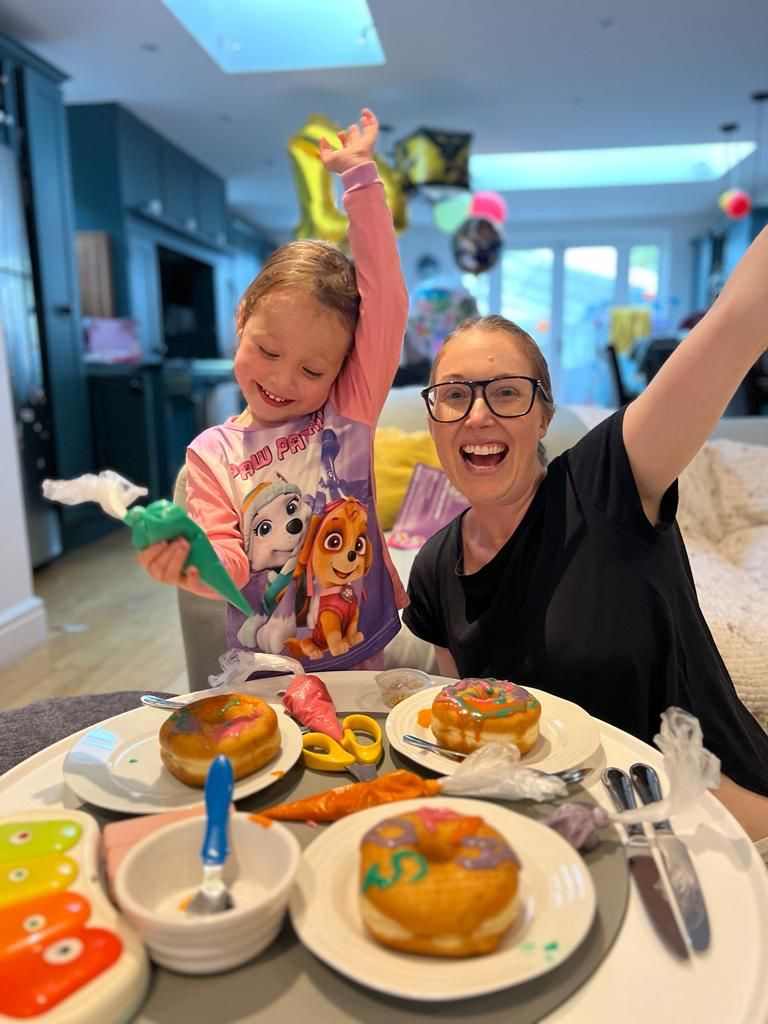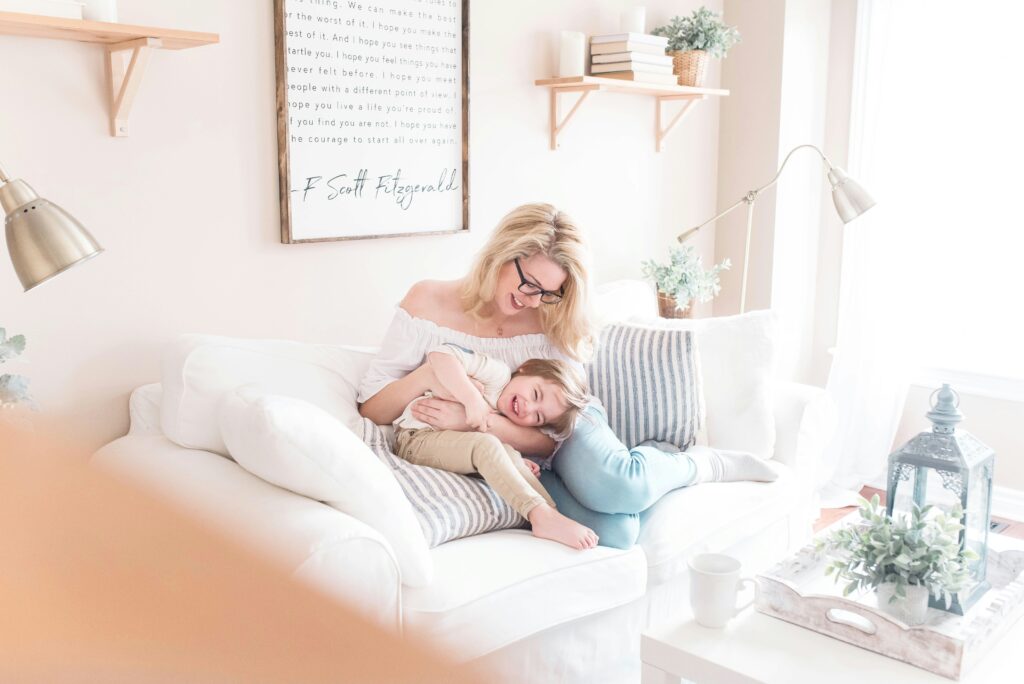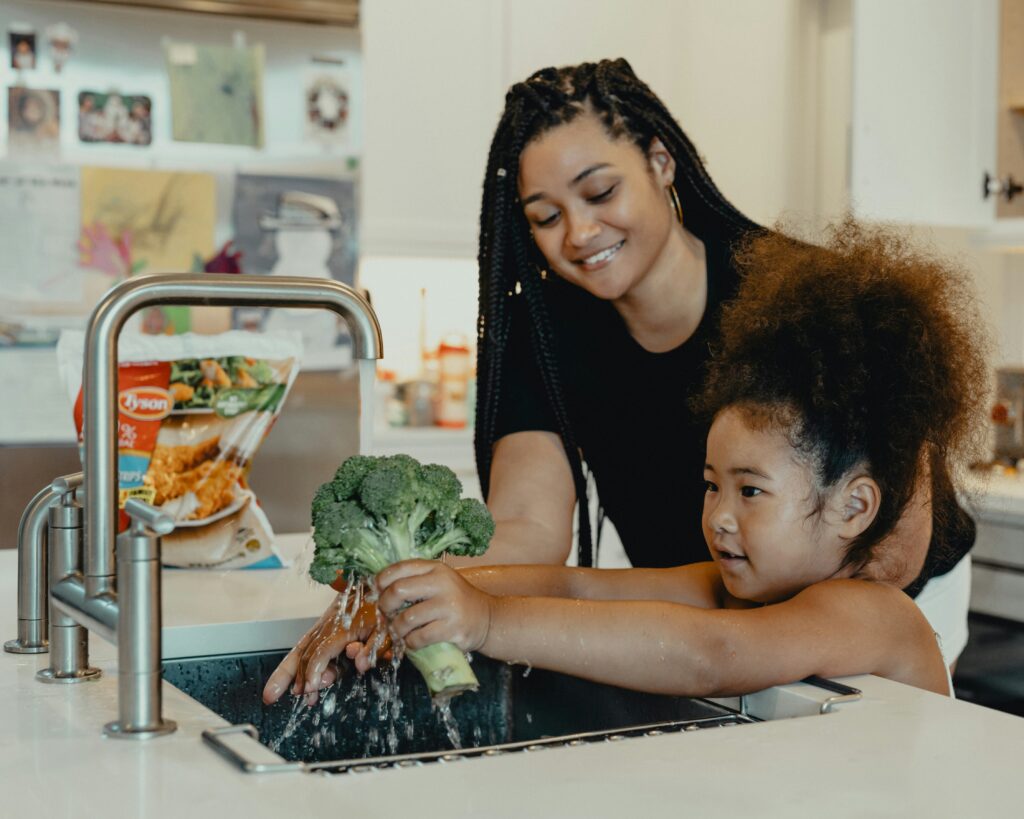Toxic diets and scale fear: How to break the cycle for our daughters
March 13, 2024

Let me ask you a question: Can you relate to any of the following?
Feeling anxious right before stepping on the scales – and crushed immediately after. Bypassing mirrors while out and about because you don’t want to catch a glimpse of your reflection. Eliminating food groups because you’ve been told it’s the only way to get thinner.
These are experiences I’d bet many women of a certain age are familiar with – and it’s little wonder.
Many of us grew up in an era that was obsessed with size zero, where we were encouraged to eat nothing but cereal to lose weight (I’m looking at you Special K diet!), where celebrities were openly body-shamed in the pages of magazines, where slimming clubs preyed on our insecurities, and fad diets ruled supreme.
It’s hardly surprising that even today so many of us have such a complicated relationship with what we weigh.
I don’t know about you, but I don’t want the same for the next generation. I don’t want our daughters or sons to go through the same body image struggles that we did.
But diet culture is insidious and it’s cyclical too, passing from one generation to the next, unless we stop it.
Did you know, for example, that in one study children who had mothers who were actively dieting were more likely to have ideas about dieting? Or that weight concerns and body dissatisfaction have been reported in children as young as three years old?
That’s pretty chilling if you ask me, but I do believe with a little forethought we can break the cycle.
We can ensure the next generation has a better relationship with the bathroom scales – and by extension food, fitness, and body image.
What’s more, we can create body positivity in our kids, even if we don’t feel particularly body confident in ourselves. (Don’t worry, we’ll work on that in this blog too!)
The trick I believe is leading by example. These tips will encourage you to break up with toxic diet culture, body shaming, and scale fear, and by extension, they’ll prevent your little ones from facing the same battles that we did, and continue to, even today.
Breaking the cycle: How to encourage body positivity in your kids
First things first, forgive yourself

Let’s make one thing perfectly clear: This post isn’t about pointing the finger of blame.
Given the toxic diet culture most of us grew up with, the blatant body shaming in the pages of certain magazines, and the unending pressure to get thin at whatever cost, it’s little wonder that so many of us have a wrought relationship with weight.
No one is intentionally passing that on to their kids and everyone (you included!) is doing their level best, so if you’re worried that you’ve unintentionally passed body insecurities on to your child, I want you to stop right now and forgive yourself.
I want you to acknowledge how toxic diet culture has undoubtedly shaped the way you see yourself and conditioned you to behave in certain ways, whether that’s obsessively stepping on the scales or banning certain foods.
Society has set women up to fail when it comes to body image, but we can change the narrative.
Reframe weight
Do you ever think about what a privilege it is to be here on this earth in physical form? To have a heart that pumps blood around your body, arms that allow you to embrace your loved ones and legs that let you explore? And do you ever remind your kids of these things?
What about all those things that can’t be weighed? Like your killer personality, your intelligence and wit, your determination, and the love you have in your heart?
When we step on the scales and don’t see what we were hoping for, we consign our self-worth to a single number – and quickly forget about all of the awesomeness listed above.
But that number doesn’t have to symbolise failure, it can symbolise strength. It’s proof that you are here on this earth and all that you are can not be summed up by a number on a screen.
This is a message you can continually share with your kids.
If you still want to weigh yourself, you can either do it out of your child’s sight or use it as a learning moment – as I recently did in this viral video.
When my daughter Sofia needed to be weighed for her car seat I encouraged her to celebrate the moment by saying “Strong”. We reframed the experience by seeing weight as something to celebrate, rather than fear.
Ditch food labeling

How often do you refer to foods as ‘good’ and ‘bad’ or use them as an indication of your moral fibre? (No blame here, by the way, we’re conditioned to behave this way).
Children are like sponges. They soak up everything we say and do and so the ‘good’ and ‘bad’ labels we assign to certain foods stick and can lead to unhealthy behaviours – like banning certain food groups – down the line.
Instead, you can involve your child in planning, preparing and enjoying meals together – and if it feels right, you can encourage them to be curious about what they’re eating.
For example, “This food has lots of protein – which helps you grow big and strong!” Or, “This food is high in carbs – which give you lots of energy. It’s delicious too!”
Doing this shows your little ones that food is not the enemy. Actually, it fuels, supports, and nourishes us – and it’s something to be enjoyed as well.
Exercise together
You can involve your child in your exercise routine too! Getting them to join you while you work out is a great example of positive role-modelling. It puts the focus on what your body can do, instead of what it weighs.
Strength training in particular encourages kids to build strong, functional bodies. It encourages them to fall in love with what their body is capable of, rather than scrutinising the way it looks.
Research shows that exercise can boost self-esteem in young kids, so go on, give your kids a role in your workouts, whether it’s copying you or getting them to join you in completing a mini-assault course.
Talk to them about social media, Photoshop, and filters

My generation grew up with the Special K diet, slimming clubs, and the size zero obsession. The younger generation is growing up in a world where they are bombarded with glossy images on social media every day of their lives.
What’s more, there’s always a new unattainable beauty standard to aspire to, like a bigger bum or smaller waist.
As adults, we know that many of these images are posed, taken in great lighting, and filtered and edited before they’re shared with the world.
Kids haven’t developed the critical thinking skills to establish what is real and what is not – you need to be that voice of reason for them.
If they’re online – or soon to be – be sure to remind kids that images can be easily manipulated and that healthy bodies come in all shapes and sizes, despite what Instagram might have you believe.
It’s time to break the cycle…
Imagine a world where the next generation feels empowered to make healthy choices for their body because it feels good, not because they feel pressured to reach some impossible beauty ideal.
Imagine a world where your children don’t have to face the same body image battles that you did. It starts with you. By following the advice above, you can heal the relationship you have with your body – and you can also raise kids who love the skin they’re in as well.